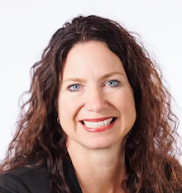Focusing on the Five Conditions: First Reflections of Dr. Jared Myracle
There are only three ways to improve student learning at scale: You can raise the level of the content that students are taught. You can increase the skill and knowledge that teachers bring to the teaching of that content. And you can increase the level of students’ active learning of the content. That’s it…everything that’s not in the instructional core can only affect student learning and performance by, in some way, influencing what goes on inside the core. –Dr. Richard Elmore Dr. Jared Myracle joined the Impact Florida staff as Senior Director of Programs in July 2022. I once worked with a principal who was fond of saying “good teaching is good teaching.” I have always appreciated the sentiment, although the phrase needs a bit of unpacking to arrive at actionable advice. The tried and true elements of what makes an effective lesson are universal: a challenging curriculum, a skilled teacher, and an engaged student. These elements, known collectively as the “instructional core



